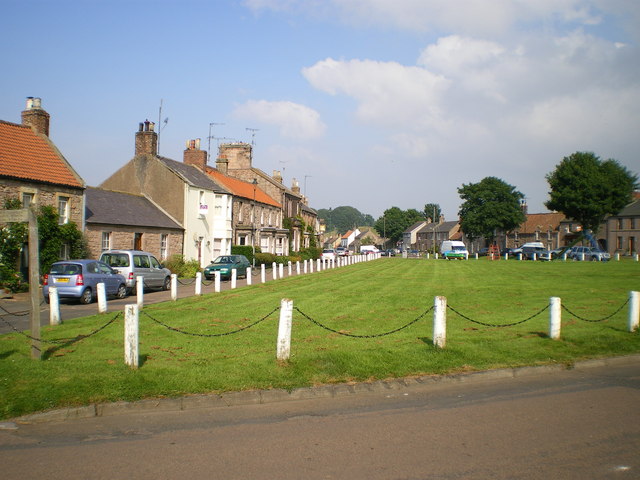Norham

Richard Law / Norham Village Green,, CC BY-SA 2.0
Norham (/ˈnɒrəm/ NORR-əm) is a village and civil parish in Northumberland, England, It is located 7 miles (11 km) south-west of Berwick on the south side of the River Tweed where it is the border with Scotland.[
Its ancient name was Ubbanford. Ecgred of Lindisfarne (d.845) replaced a wooden church with one of stone, translated the relics of St. Ceolwulf here. Norham is mentioned as the resting-place of St Cuthbert in the early eleventh century text On the Resting-Places of the Saints, and recent research has suggested the possibility that Norham (rather than Chester-le-Street or Durham) may have been the centre of the diocese of Lindisfarne from the ninth century until some time between 1013 and 1031.
It is the site of the 12th-century Norham Castle, and was for many years the centre for the Norhamshire exclave of County Durham. It was transferred to Northumberland in 1844.
It was on the Tweed here that Edward I of England met the Scots nobility in 1292 to decide on the future king of Scotland.
Sir Walter Scott gained fame as a poet, particularly with Marmion set around the Battle of Flodden in 1513. It begins:
"Day set on Norham's castled steep,
And Tweed's fair river, broad and deep,
And Cheviot's mountains lone:
The battled towers, the donjon keep,
The loophole grates where captives weep,
The flanking walls that round it sweep,
In yellow lustre shone
."
The 19th-century Ladykirk and Norham Bridge is a late stone road bridge that connects the village with Ladykirk in the Scottish Borders
Skip hire in Norham?
Dunbar Skip hire covers and services Norham and the surrounding areas in North Northumberland and the Scottish Borders offering a same day service, 7 days a week

